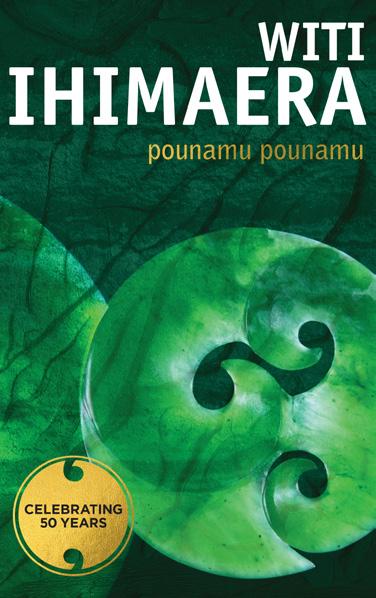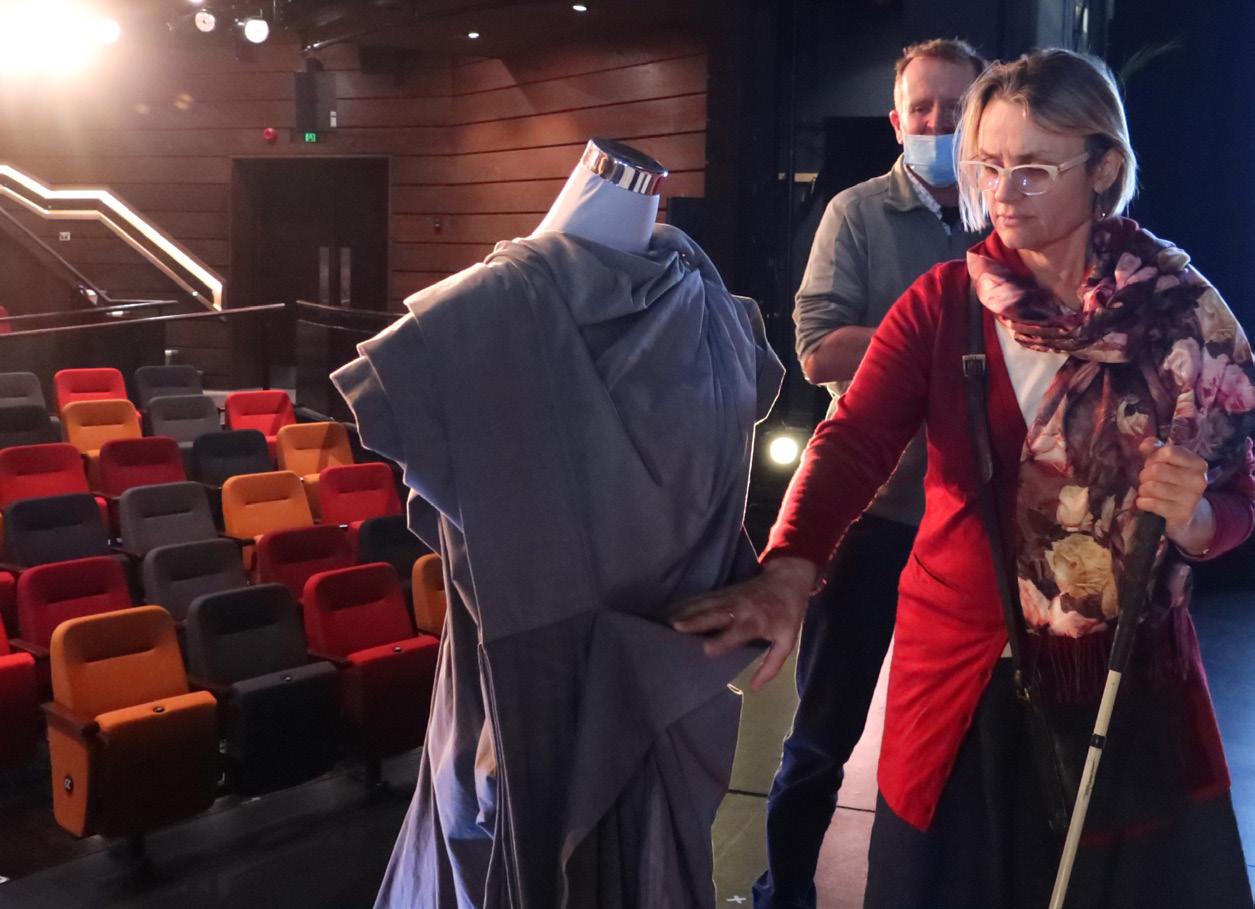
6 minute read
Tangi
Shearer’s Huts, Scrubcutters’ Shacks & Sugarbag Windows
by Witi Ihimaera
My father, Rongo, was born in Waituhi and belonged to one of three Mahana clans. The first was the whānau devoted to Riripeti, who was a Ringatū priestess well known throughout Māoridom. She led the faithful in our valley. My father belonged to the second, smaller, clan of Teria and Pera. They were ahi kaa, meaning they kept the home fires going, and they supported Riripeti. The third was Bulibasha and Ramona’s clan, which provided shearing gangs for Pākehā farmers.
Dad caught the eye of my mother, Huia, at a dance in Gisborne. She was from the Ngāti Porou people of the East Coast but was staying in the city and worked at a canning factory. On weekends she would go dancing with her friends and was sick of being picked up by young men who were only out for a good time. She had actually looked at Dad once but, no, she had seen a bad boy who got drunk with his mates on Fridays and probably beat his girlfriends.
However, when Mum looked at Dad a second time, she saw that he had qualities she could work on. At least he didn’t smoke and, if he tried to beat her he had better watch out, she was no shrinking violet. Then there was the fact that he was obedient to his mother, Teria. Although among Teria’s sons he was down the line in terms of male seniority, she had still raised him like the others. To look after the valley, with his particular task being to care for the old people and take meat and vegetables to them if they were hungry or sick. To show some leadership at meetings where the iwi discussed how to get the land back from the soldiers it had been sold to.
Best of all, Rongo Mahana knew how to work.
That was raw material enough. Mum and Dad married and he brought his bride back to Waituhi. Not for long, though, just to claim tribal residence through Dad’s whakapapa lineages, and then they set out to find work.
Within a year I was born and Dad took the afterbirth to Rongopai, one of three marae in the Waituhi Valley, and buried it in the earth. It would be the umbilical connecting me forever with the valley. My brother
Rāwiri came next. In those days when Māori infant mortality was high he died, coughing for breath, during the winter when he was three. Rīpeka was born a year after him, then came Mere and, soon after, Wiki; Hōne and Mārama weren’t thought of yet.
With a wife and four kids, gone were Dad’s bad boy days.
My father had limited Pākehā education. He hadn’t stayed at school for very long and, instead, was educated by his grandparents. Their wisdom in the ways of the land was immense and they understood its whims with the deep patience of people who had lived all their lives close to the earth. If the land was wilful and did not grow their crops or if a storm laid the maize low, it did not matter. They would be patient. Some time, the calm would come again.
My mother too, hadn’t had much education. She often told Rīpeka and me of days when she had to walk to school, a long way. Her father had no money to afford such things as we were accustomed to, like shoes and nice clothes.
Both Mum and Dad had left school early to work. Dad to go out shearing and scrub-cutting with the Mahana clan. Mum had taken jobs as a cook and a servant before becoming a factory worker. Where my parents had an advantage in actually securing jobs in the Gisborne district was that Mum and Dad contracted themselves out as a working couple. Mum didn’t stay at home having the babies. No, she went with Dad and took us with her. If Dad was working as a shearer in one of the Mahana shearing gangs she went along as a fleeco. When the season was over, they took on anything, say, from Dad as horsebreaker and Mum as kitchenhand (although she was better at breaking in horses than Dad or any other man was). Or as a two-man scrubcutting team, fencing duo or opossum trappers. They would also do anything extra the boss or Mrs Boss asked them to do. And if the boss needed some other odd jobs done, my sisters and I took those on.
You want your paths swept or outhouse cleaned, boss?
We were never too proud.
My first memories as a child are blurred with a succession of shearing whare during the season when we travelled around like gypsies. Or else, during the off-season, of shepherds’ quarters and draughty single-room scrubcutters’ shacks. Of sugarbag doors and windows, straw mattresses, dirt floors, outside lean-to corrugated iron kitchens and, somewhere in a paddock, a wash house and longdrop toilet. Of hazy glimpses of Mum lifting cooking pots onto hooks over open fires. Or Dad checking his saddle by the light of a solitary candle. Or my sisters and I patching holes in the walls to keep the wind and rain out.
Mum always tried to make each whare beautiful. We always seemed to arrive at night, and every whare was dirty and smelly with the walls smeared with black smoke, the table and cupboards still strewn with daysold food left by the previous hands, and the floor littered with chipped crockery or broken chairs. Sometimes a window would be swinging on one hinge or a door just propped up in the frame. We would stand in the doorway, surveying each whare until the light cast by a match burnt out. And, because Mum had seen many of her family die of flu, TB, meningitis or respiratory infections from unhealthy living conditions, the first thing we ever had to do was to clean our new shack from top to bottom. Was she going to let her kids take one more step into this hovel, let alone sleep in it? No fear.
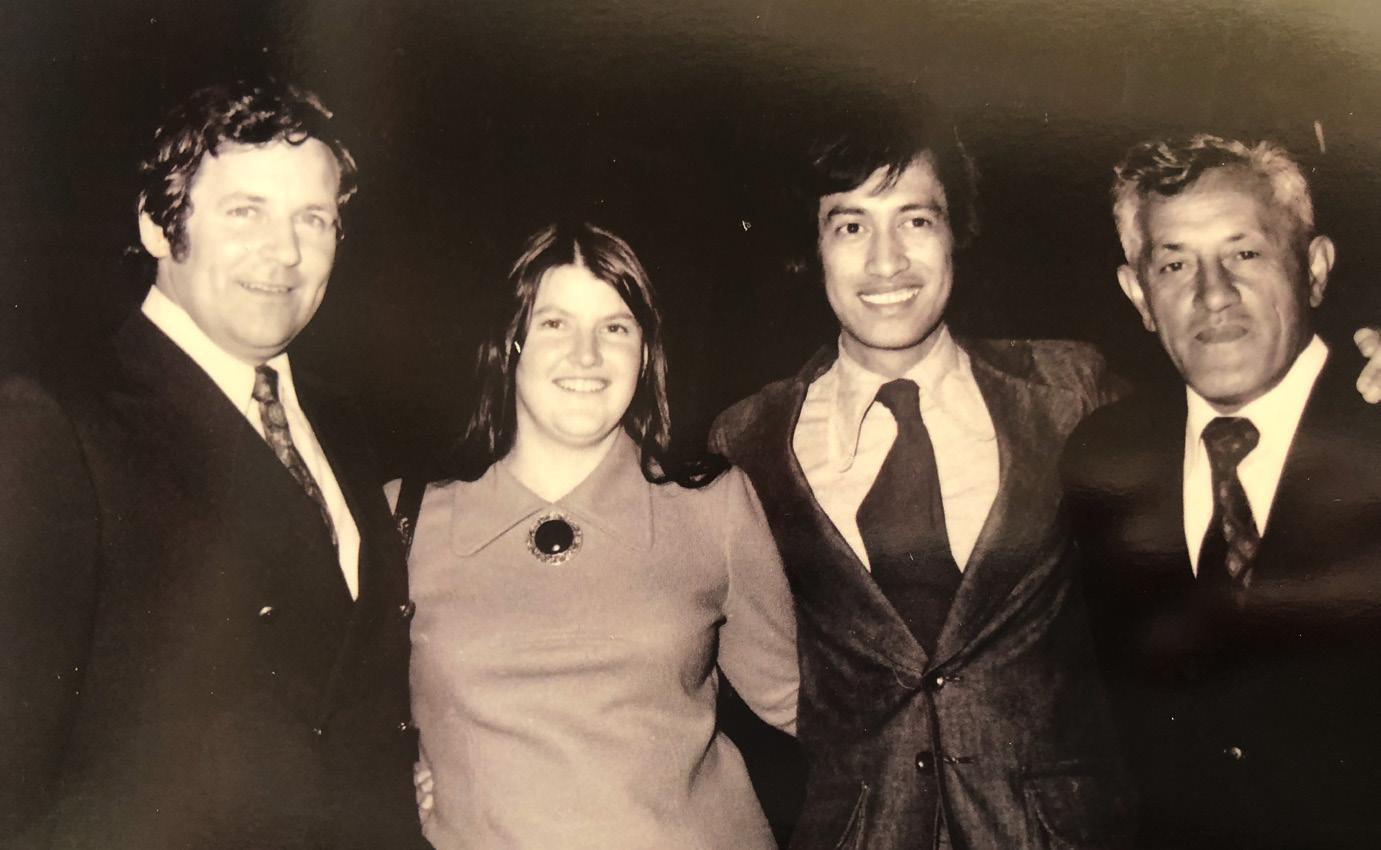
You kids, go and help your Dad bring our washing things from the truck.
By ‘You kids’ she meant me and Rīpeka, so we would run back to the truck with our father. Most times that meant going for miles by torchlight because the places we worked at were not exactly first pick. You couldn’t drive up to the front door. There were times when Dad had to leave the truck on the other side of a river, for instance, or gully. We’d have to wade through the water or climb stony tracks to get to our new home.
As for pitch black country nights, Rīpeka and I were already accustomed to those. We had often been left alone when Mum and Dad were working late. No matter how dark it was or how far we had to go to reach the truck, Rīpeka and I were never afraid. All we had to do was keep our eyes fixed on the headlights shining far away. Anyway, Dad was with us and not even kēhua could frighten us.
Back and forth we’d go from the truck to the whare, then back to the truck again. Every time we got to the whare, Mum would have cleaned it up a little more. Wipe, wipe, wipe. Scrub, scrub, scrub. Clean, clean, clean. No time to sit down, she would say to us. When we’ve finished, then we can rest. Then, Clean enough, Mum would say.
We would finally be able to have dinner on our clean plates on the spotless table and the babies would be able to crawl around on the immaculate floor. Afterwards we would sleep on mattresses full of fresh hay and close the sugar bag windows so the flying insects couldn’t come in. The fowls and chickens and Roos would sleep by the fire on the spotless hearth. Kurī and Tim, would sleep outside with our pig in their spotless new fenced enclosure. Rīpeka, Mere and Wiki slept with Mum and Dad. I always had my own bed. And Dad would have fixed the door so that it could shut. Even in the middle of nowhere, we had to keep ourselves safe.
And we, too, after our baths, would be spotless.
With the door secured nice and tight, Dad would say: I’m not too sure how I feel about the sleeping arrangements. Sometimes I feel like Joseph going to bed in a stable. The only thing missing is…
What? Mum would ask.
The donkey.
Immerse yourself in the words and worlds of Witi Ihimaera that inspired Witi’s Wāhine. Purchase copies of Witi Ihimaera’s celebrated books and the new anthology A Kind of Shelter Whakaruru-taha, featuring poetry, short fiction, creative non-fiction, and kōrero between writers and artists, from both Aotearoa and abroad.
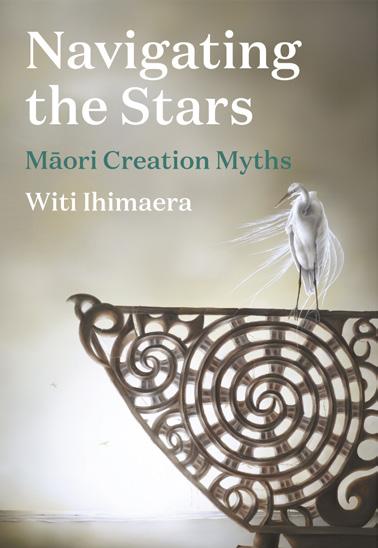
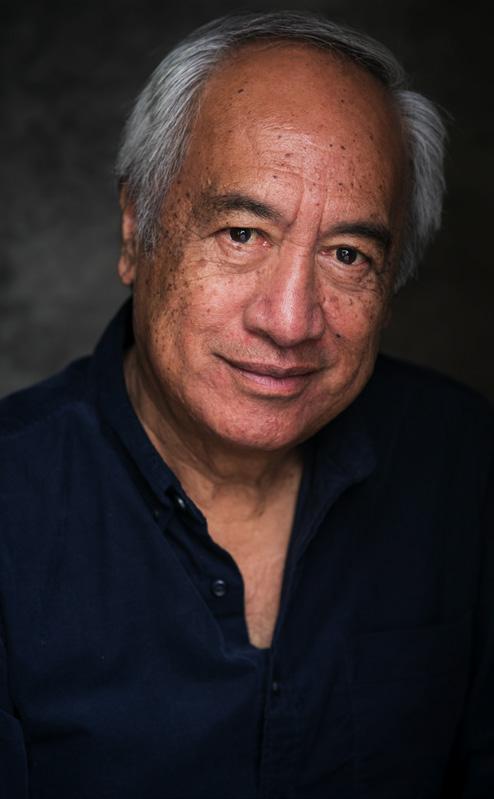
Pick up your copy and choose to have it signed at ASB Waterfront Theatre from 2 to 20 May.
Navigating the Stars
The Astromancer

A Kind of Shelter
Whakaruru-taha
Edited by Witi Ihimaera and Michelle Elvy Available
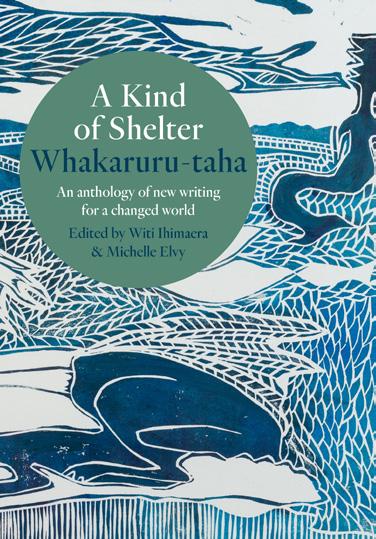
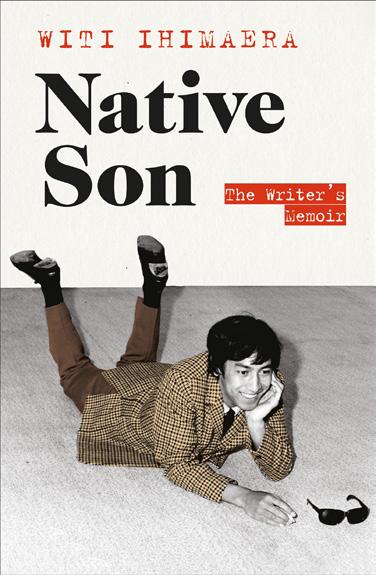
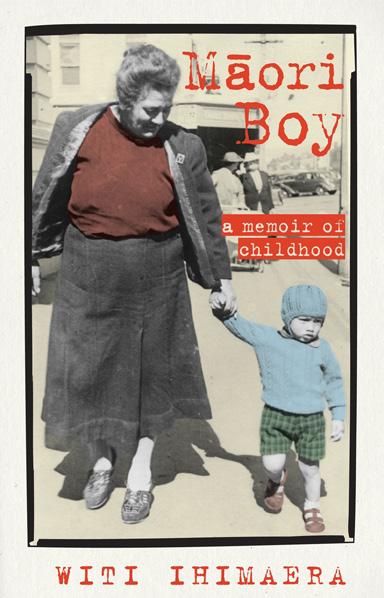
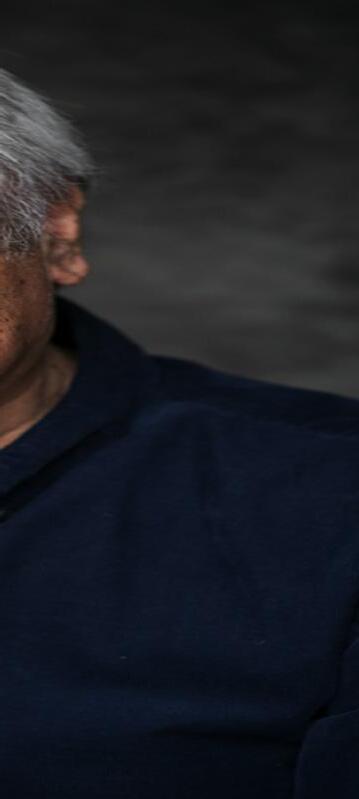
from end of April
